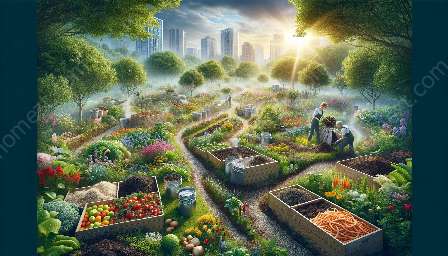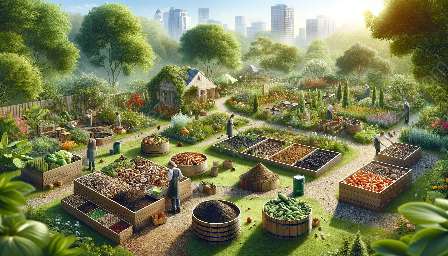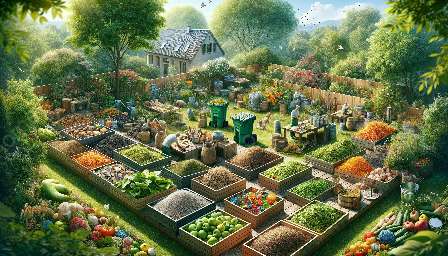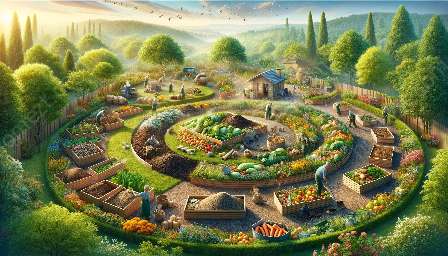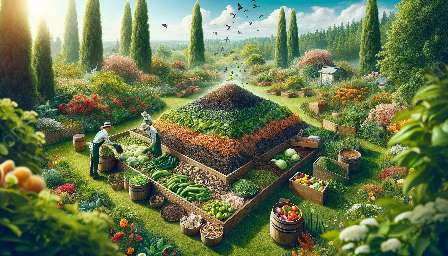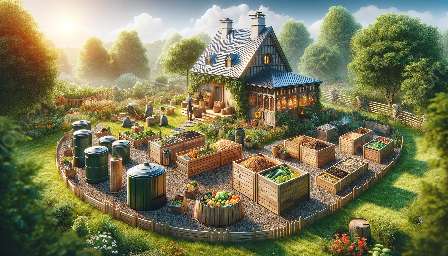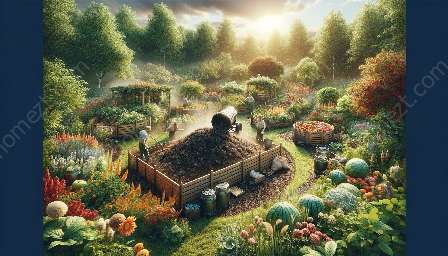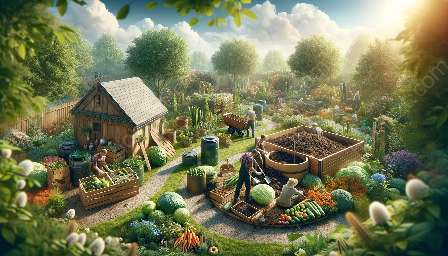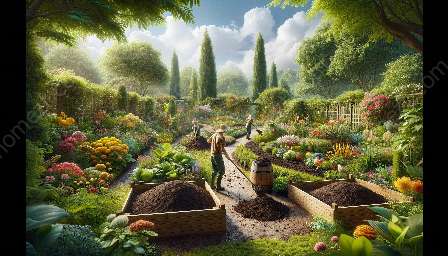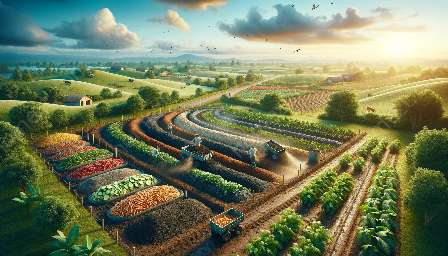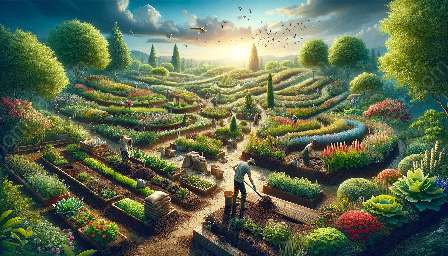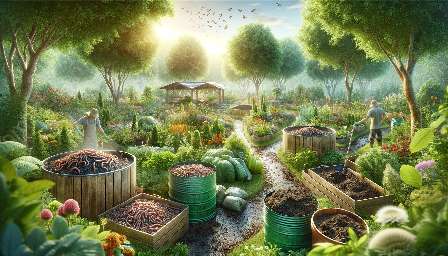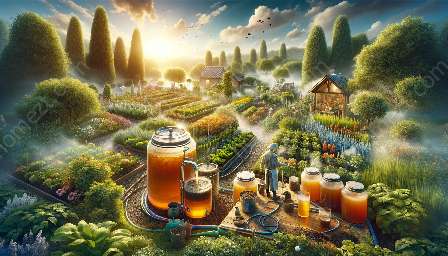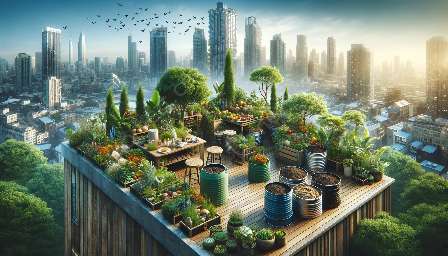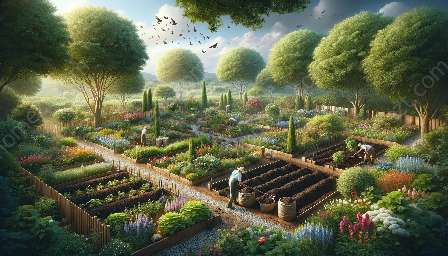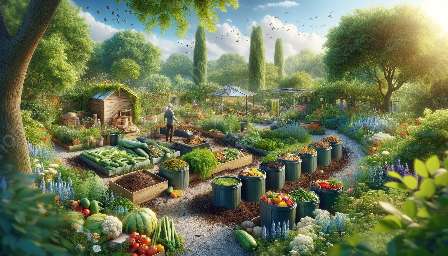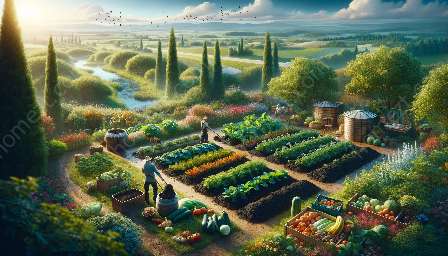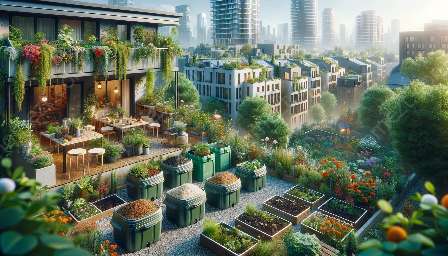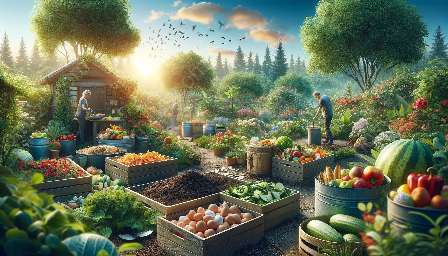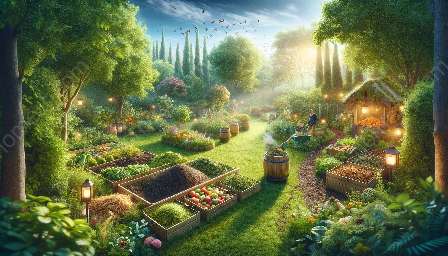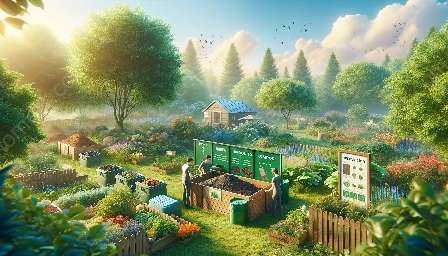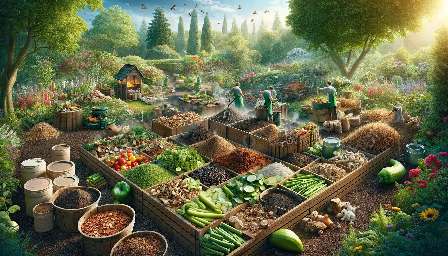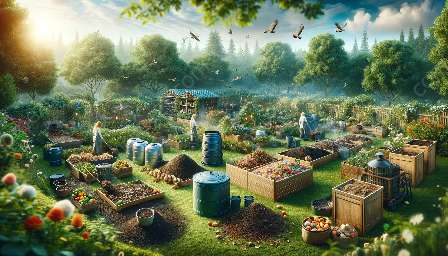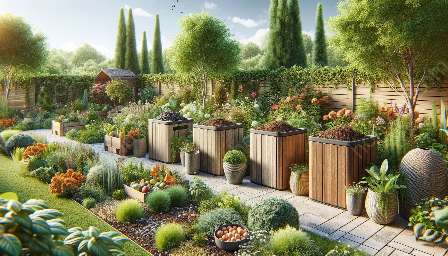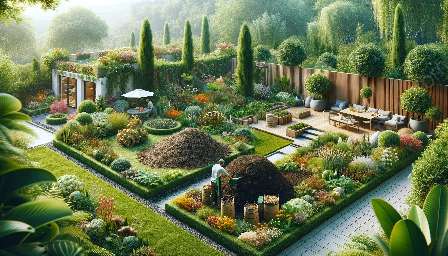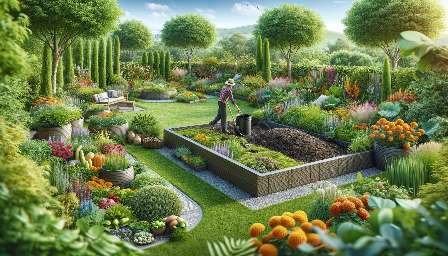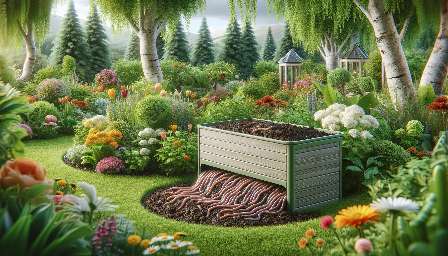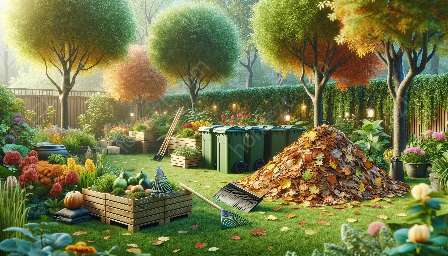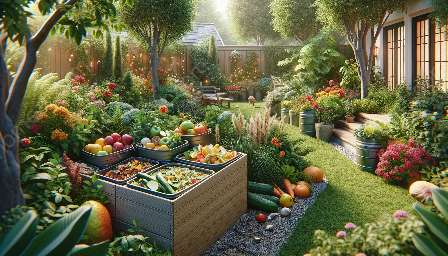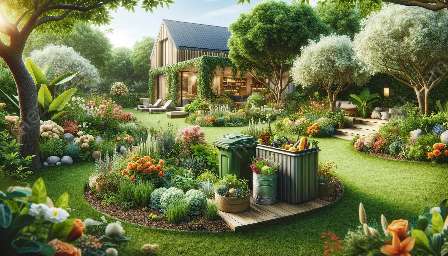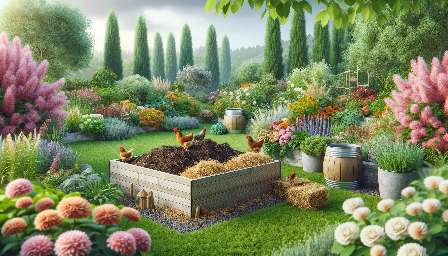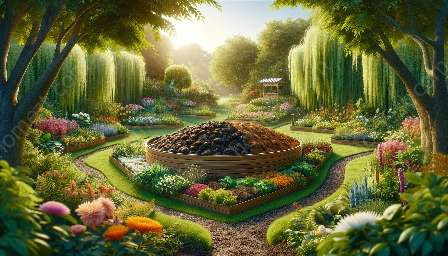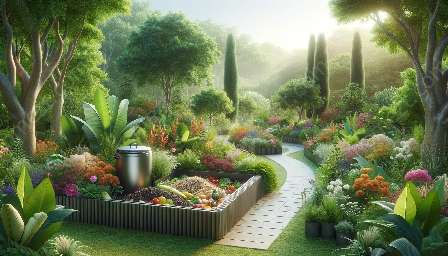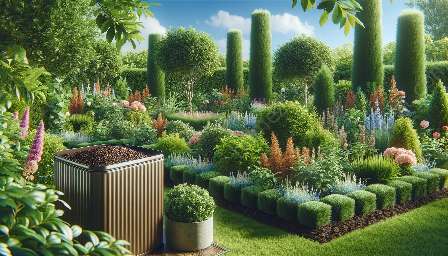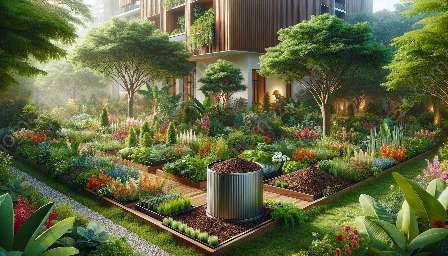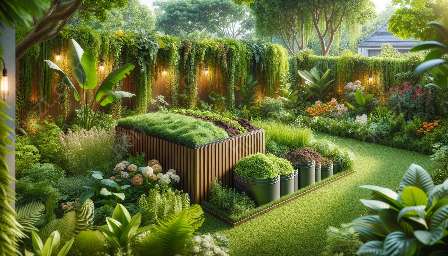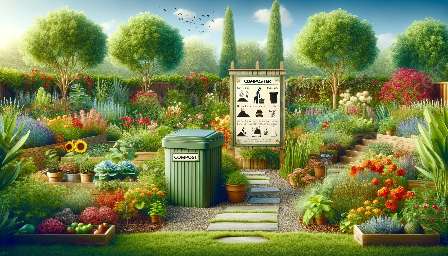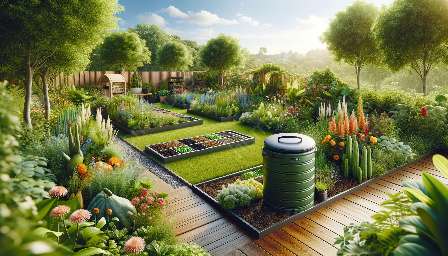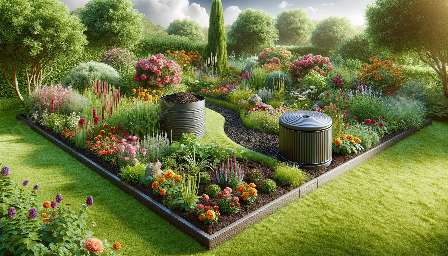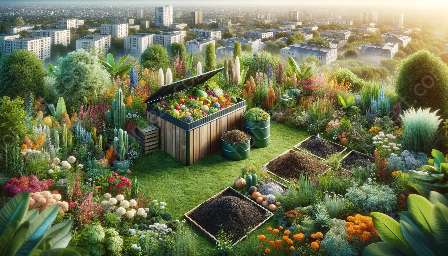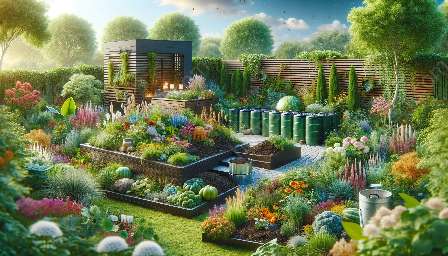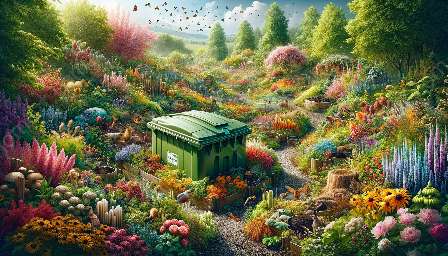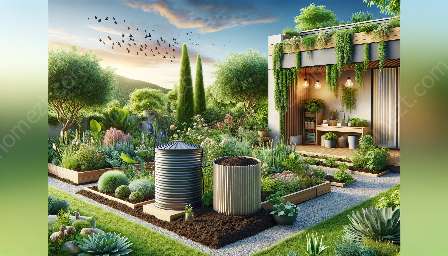Composting and sustainable gardening are two interconnected practices that play a vital role in creating a thriving, environmentally conscious garden. Both processes complement each other and are integral to organic gardening and landscaping, ensuring that the ecosystem remains balanced and sustainable over time. In this comprehensive guide, we'll explore the principles of composting, its benefits, and how it ties into sustainable gardening, providing you with the knowledge and tools to cultivate a lush, eco-friendly garden.
The Art of Composting
Composting is a natural process where organic materials such as food scraps, yard waste, and dry leaves decompose to form nutrient-rich compost. This transformative process yields a dark, crumbly substance that is often referred to as 'black gold' due to its exceptional benefits to the soil and plants. The key elements for successful composting include the right mix of organic materials, air, water, and microorganisms. By balancing these components, you can create a fertile, nutrient-dense compost that acts as a natural fertilizer for your garden.
Types of Composting
There are several methods of composting, including traditional composting bins, vermicomposting with the help of earthworms, and trench composting, where organic materials are buried directly in the garden soil. Each approach offers unique advantages and can be tailored to suit your gardening needs and available space.
Benefits of Composting
Composting offers numerous benefits for both the environment and your garden. It helps reduce the amount of organic waste sent to landfills, minimizing greenhouse gas emissions and contributing to a healthier planet. Additionally, compost enhances soil structure, improves water retention, and promotes the growth of beneficial microorganisms, creating a fertile ground for healthy plant growth.
Sustainable Gardening
Sustainable gardening involves cultivating a garden in harmony with nature, minimizing the use of synthetic fertilizers and pesticides while maximizing environmentally friendly practices. By integrating composting with sustainable gardening, you can create a self-sustaining ecosystem that not only supports plant life but also attracts beneficial insects, birds, and other wildlife, fostering biodiversity and ecological balance within your garden.
Organic Gardening Practices
Organic gardening emphasizes the use of natural approaches to maintain the health of the soil and plants, including composting, crop rotation, and the use of organic fertilizers and pest control methods. These principles align with sustainable gardening, as they seek to preserve the environment and promote long-term soil fertility and plant vitality.
Landscaping with Compost
Compost can be utilized in landscaping to enrich the soil, improve its texture, and encourage vibrant plant growth. Whether you're tending to flower beds, vegetable gardens, or ornamental shrubs, integrating compost into the soil can revitalize your landscape and reduce the reliance on chemical amendments, fostering a more sustainable and naturally balanced outdoor space.
Conclusion
Composting and sustainable gardening encompass a holistic approach to nurturing the environment while reaping the rewards of a vibrant garden. By harnessing the power of composting and aligning with sustainable gardening practices, you can create a verdant oasis that not only enhances the beauty of your outdoor space but also contributes to the well-being of the planet. With a deeper understanding of these interconnected processes, you can embark on a journey towards eco-friendly gardening and landscaping, enriching your surroundings while preserving the natural world.

